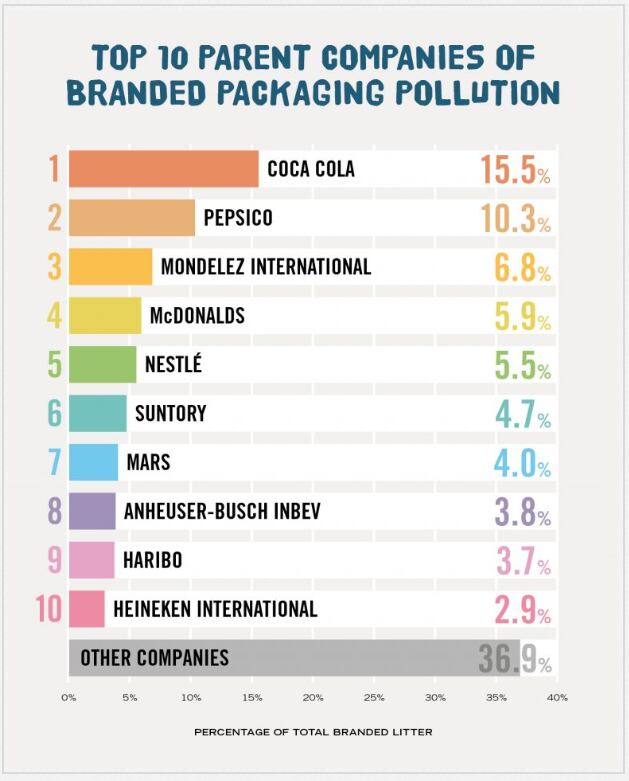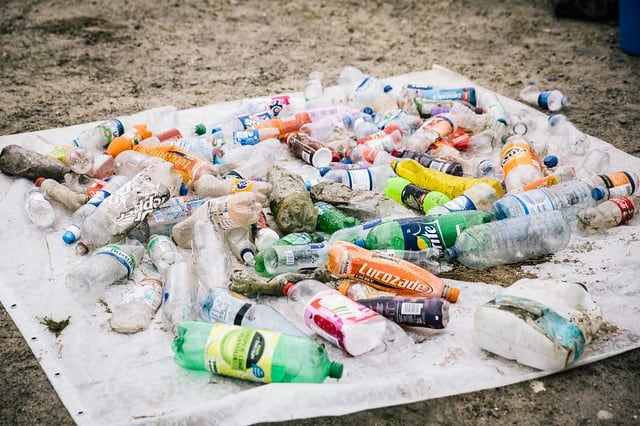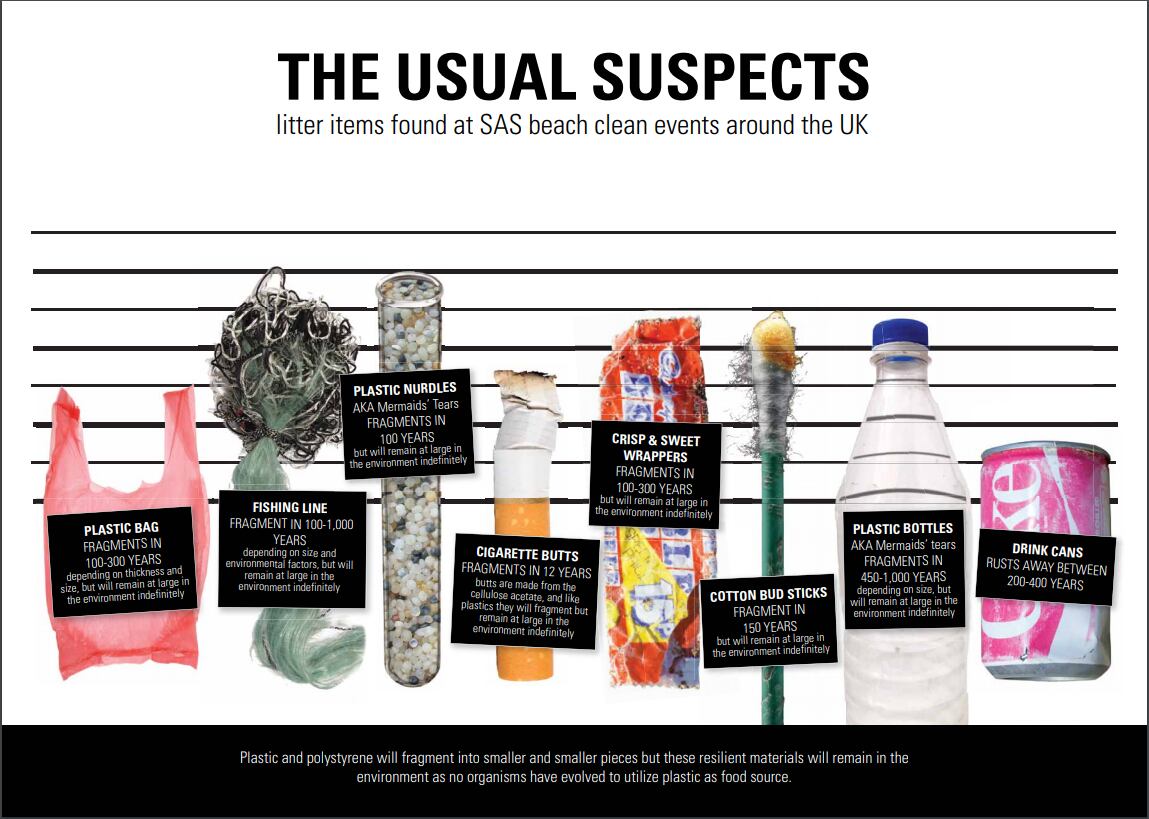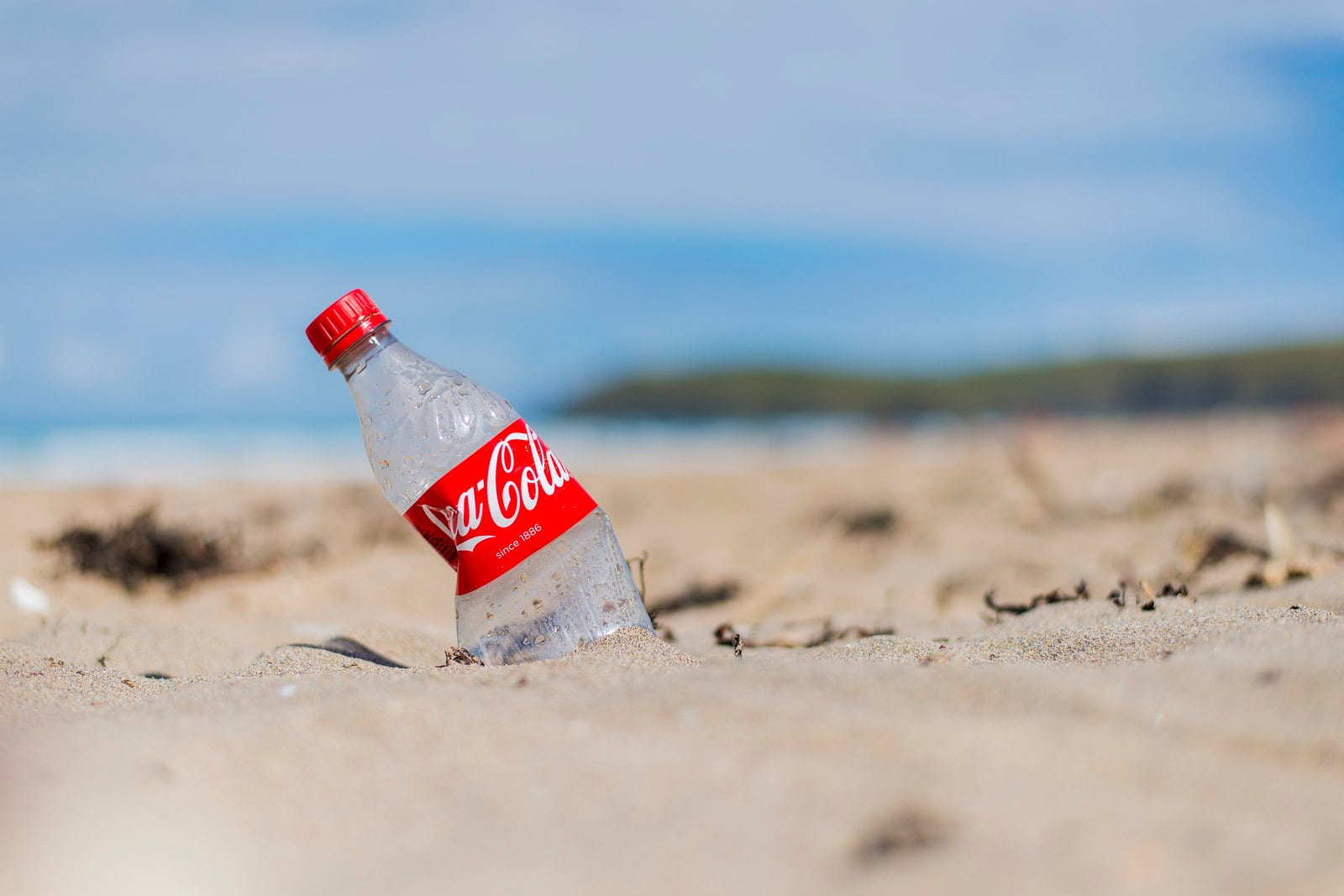Surfers Against Sewage commissioned a survey of litter found across beaches and rivers in the UK.
More than half of packaging litter was made by only 10 food and drinks companies, the survey, conducted by more than 45,000 volunteers, discovered.
During the 229 cleans in April, 49,413 pieces of litter were picked up, of which 20,045 were branded, with Coca Cola producing the largest proportion of branded items (15.5%). PepsiCo, which owns Walkers, made 10.3%, followed by Mondelez International, which owns Cadbury, at 6.8% and Nestle 5.5%.
Hugo Tagholm, Chief Executive of Surfers Against Sewage, said: “Our survey clearly shows that big business is responsible for the scourge of plastic and packaging pollution. Just 10 companies were responsible for over half of the packaging pollution recorded.
“Unsurprisingly, the high street brands had headline appearances with Coca Cola, PepsiCo, Nestle and McDonald’s all gracing the top 10. These companies must invest more in the redesign of packaging, alternative ways of product delivery and ramping up packaging re-use to truly turn the tide on the plastic pollution that is sweeping our world.”

‘Stricter rules from government needed’
The charity urged the UK government to make producers take on more costs for dealing with their packaging once it was discarded.
At present, retailers and manufacturers pay around 10% of the disposal costs, or less than £100 million a year. The other 90% is funded via council tax bills and general taxation.
The Department for Environment, Food and Rural Affairs (Defra) is currently conducting a public consultation on proposals to require industry to pay the full cost of disposing of it. Defra is considering increasing the amount companies pay to between £500 million and £1 billion a year.
SAS said it wanted companies to invest more in redesigning packaging to use less material and make it easier to recycle. It also wanted companies to provide “full transparency and disclosure on the amount and type of packaging they use in order that new extended producer regulation can be truly effective,” said Tagholm.

He added: “This is not a littering issue – business needs to provide radical and responsible new systems that drastically reduce their impact on our oceans, forests and nature at large. People and planet need these companies to change how they do business. At the moment, the cost of this waste is left in the hands of local councils, taxpayers and, finally, the environment.”
A spokesperson for Mondelez International-owned chocolate brand Cadbury said: “Without robust packaging, the shelf life of many products would be far shorter and could create more food waste which is 10 times more detrimental to the environment than plastic. We have managed to make substantial progress to minimise the environmental impact of packaging by developing products that are 100% recyclable (depending on your local recycling facilities) while also protecting the product inside and keeping it fresh. All details of recyclability are clearly detailed on pack.”
Mondelez said its top line commitments were:
• All paper-based packaging will be sustainably sourced by 2020
• 65 million kg of packaging material worldwide will be eliminated by 2020. This builds off the company’s success in removing 53.5 million kg of packaging material since 2013 and is consistent with its commitment to use the right amount of material to keep products fresh and safe while minimising the amount of packaging used
• Make all packaging recyclable and provide recycling information in markets around the world by 2025
Isn’t litter the responsibility of those who drop it?
Individuals must also take responsibility for litter, admitted SAS. “There are three strands to this issue: governments, producers and individuals,” a spokesperson told FoodNavigator. “It’s a three-pronged approach; not one of those actors can solve the problem by themselves. It’s a circular approach that needs to happen.”

The food industry supports an increase in disposal costs
The Food and Drink Federation said it supported an increase in disposal costs and efforts at “helping people understand where are the right places to dispose it.”
A FDF spokesperson told FoodNavigator: “We support increasing the amount that we pay as part of the extended producer responsibility. But we would like to see that used in very constructive ways to increase the recycling rates, for example, and clearing up litter is something that should be a prevention. Just clearing it up more doesn’t mean people litter less.”
It was entirely possible that costs would pass on to consumers, the spokesperson added.
“If there’s investment in helping people understand what to do with packaging and not to litter it then that would be a good use of additional money that businesses would pay.
“If that makes people value packaging more, that would be a very positive thing and I think companies would be prepared to be very transparent about increased costs.”


